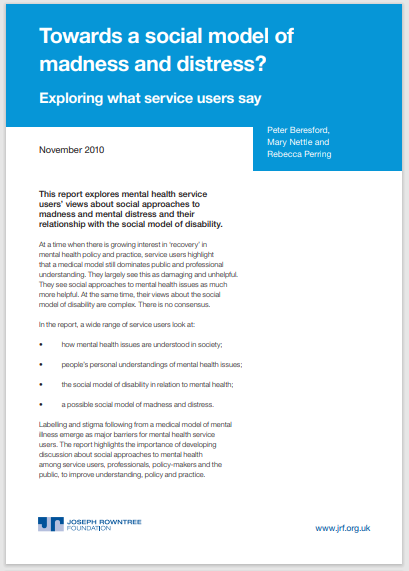Peter Beresford, Mary Nettle, Rebecca Perring
November 2010
This national study explored with mental health service users what models they felt underpinned mental health policy and practice in England. It aimed to encourage discussion about a social model of madness and distress, particularly among mental health service users/survivors and their organisations, and to indicate areas for further research and development, at a time when there was growing recognition of the importance of a rights-based approach to mental health service users, even as their rights were subjected to increased legal restrictions, notably through the Mental Health Act that had recently passed into law. The study found that most service users believe dthat a medical model, based on deficit and pathology, still dominated public and professional understanding of mental health issues, shaping attitudes and policy. It also found that the labelling and stigma created by a medical model of mental illness were major barriers to access for mental health service users. The idea of a social model of madness and distress, following the format of the social model of disability, met mixed views, but service users did see social approaches to mental health issues as much more helpful.
In partnership/with support of: Joseph Rowntree Foundation
Download report 
